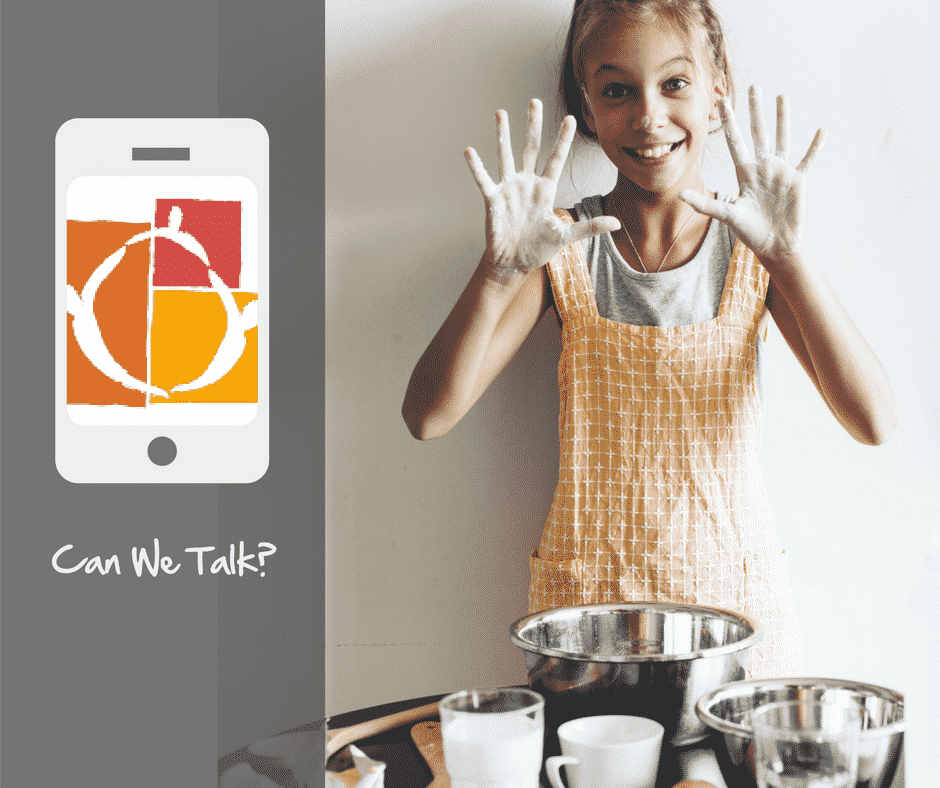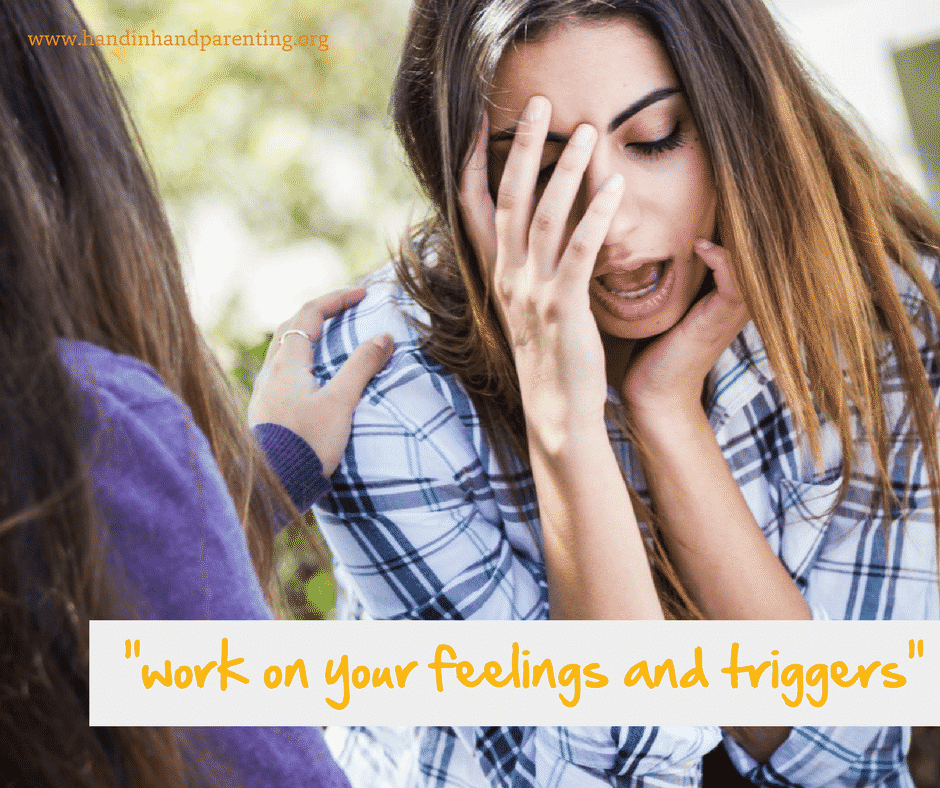 Blending a family, and nurturing new sibling relationships, isn’t a simple task. It requires us to be thoughtful of each child and remember the separate, and long-established, histories they each bring with them.
Blending a family, and nurturing new sibling relationships, isn’t a simple task. It requires us to be thoughtful of each child and remember the separate, and long-established, histories they each bring with them.
Since there is no one structure to a blended family, children may be transitioning a lot. Your children may be coming and going each week or weekend or they may stay full time, while other siblings come and go. Your children may even have step or half-siblings in each of the households they live in. That's a lot of sibling relationships to navigate! And, on top of that, many children are experiencing different rules and expectations in each of their homes.
Add in the feelings children have about not being with both of their biological parents in the same house anymore, and having to share their mom and/or dad with new people, it's no wonder sibling relationships can explode with difficulty.
If you are a stepparent working to happily blend families, here are some ways the Hand in Hand Listening Tools can help build close, caring relationships.
How to answer the big questions: Do I matter to you? Do you love me?
 All children need reassurance that they are loved for who they are. When children experience a break in their primary relationships their need for reassurance goes up. Add in a new partner and new siblings and it becomes vital that your children, both biological and step, feel that they matter to you.
All children need reassurance that they are loved for who they are. When children experience a break in their primary relationships their need for reassurance goes up. Add in a new partner and new siblings and it becomes vital that your children, both biological and step, feel that they matter to you.
Special Time is a tool where you give timed, one-on-one, attention to one child at a time. During this time you put aside everything else on your plate, follow the child's lead, and do what they want to do. Even five minutes can make a difference. Just be sure to name it, time it, and give your full attention to the child whose turn it is. For full details print out this Special Time checklist.
Special Time helps children feel loved and cared for in a very tangible way. You are giving them you, your time and your energy, and your delight while they choose what to do. When you're shining your love and warmth on your children, they soak it up and begin to thrive. No matter how many children you have in your blended family, finding time for Special Time can help everyone get along a lot better. If sibling squabbles break out often over who gets your attention, Special Time helps reassure each child that you want to be with them.
Offering Special Time to your stepchildren helps you get to know them well, allows for important bonding to happen, and lets them know you hold them on equal footing with your biological children. It is also a solid way to build the connection, trust, and safety needed for cooperation to follow.
Embracing feelings when tempers flare
When big feelings flare between siblings, we parents blending a family need to remember that it’s perfectly normal for siblings, new and old, to have strong feelings about each other. Special Time can help ease sibling tensions as each child grows to feel more secure in their place in the family, but issues will come up no matter how loving, fair, and patient you are. The important thing to remember is that no matter how uncaring a child’s behavior looks on the outside, our children really do want to get along and have fun together. When upsets happen, and they will, your caring and listening will go a long way toward healing the hurt and repairing the relationship.
Here's how it can work:
 My almost 12-year-old daughter baked a delicious batch of cupcakes for her grandmother's birthday. She happily served them to everyone. My partner's son was apprehensive about the treat. He said, “I'll have one but I'll just eat the icing.” This sent my daughter over the edge. She declared he shouldn't get a cupcake if he was only going to eat the icing. I told her, “It's his choice.” and she fumed.
My almost 12-year-old daughter baked a delicious batch of cupcakes for her grandmother's birthday. She happily served them to everyone. My partner's son was apprehensive about the treat. He said, “I'll have one but I'll just eat the icing.” This sent my daughter over the edge. She declared he shouldn't get a cupcake if he was only going to eat the icing. I told her, “It's his choice.” and she fumed.
He then took a lick of the icing and decided he didn't like it. She became furious with him. She went into her upset about the cupcake being “wasted” now and let us all know he never should have been given one. She then began yelling at him about his food choices. I set a limit with her that I would listen but I would not let her yell at him and direct her upset at him. She stopped yelling, but still glared at him.
His dad took him and his little sister outside while I listened to my daughter. She fumed more about the wasted cupcake, how he “never” eats her baking, and his poor taste in food. I didn't say much, but just listened to her. I steered clear of logic and trying to fix the problem, and worked hard not to imply that her feelings and thinking were irrational. There was no way to make this situation “right” in her eyes. It didn't matter to her that five other people enjoyed her cupcakes; she was solidly focused on the one who didn't. I just stayed with her as she ranted, neither agreeing nor disagreeing with her, but fully focused on hearing her through.
As hard as it is to stay with someone during a messy emotional storm I held tight to what I know: listening heals. Listening to my daughter's upset would not only help heal her own upset around this situation, it would allow her to dump all the hard feelings that make her frustrated and irritated with my partner's son. After five or ten minutes of simply listening to her upset, she calmed and said she was ready to go outside. I felt a little unsure. I wondered, was she really finished, or was she just going to go out there and lay into him again?
I watched as she went outside to see what she was going to do. She didn't choose to play alone, or with their little sister, but actually went to him to see what he was doing. They reconnected beautifully. Free of her upset, she now showed a lot of consideration for his feelings and what he was wanting. They enjoyed the rest of the afternoon together, having fun and even problem-solving as needed.
As much as we want our children to get along and be reasonable, in situations like this it is often best to just listen. Bringing in our perspective and logic when tempers are flaring often gets in the way of the emotional healing process and can actually leave our children feeling unheard and misunderstood.
This process of trusting our child's innate ability to feel and heal is called Staylistening. Over time, siblings in blended families can learn that big feelings can rise, they can think they hate each other, and then once they are heard and allowed to get the hard feelings out (preferably out of earshot of each other), they can return to loving each other and playing well again.
As parents, we don't have to do much. We simply hold confidence in our children’s ability to work through their emotions. We provide a safe container for them so they don't hurt themselves or anyone else, and we reassure them we love them and will support them through it. It's simple, and yet, sometimes it's the hardest thing to do!
What do you do if you're the one with the big feelings?
 When sibling squabbles are sending you over the edge it's a sure signal you need more support. It's not your fault if you're having a hard time keeping your cool when the kids start fighting…again. Few of us have strong models of what it looks like to listen well and support siblings through rough patches. Our parents most likely lacked support for their parenting, and were too often short on patience. So if we fought with our siblings, we were probably threatened, yelled at, bribed, lectured, or punished in some way as they tried to make the fighting stop.
When sibling squabbles are sending you over the edge it's a sure signal you need more support. It's not your fault if you're having a hard time keeping your cool when the kids start fighting…again. Few of us have strong models of what it looks like to listen well and support siblings through rough patches. Our parents most likely lacked support for their parenting, and were too often short on patience. So if we fought with our siblings, we were probably threatened, yelled at, bribed, lectured, or punished in some way as they tried to make the fighting stop.
We parents do all we can to get out of these reactive habits. We want to have more patience, empathy, and maybe even a dash of creativity in handling sibling fights. One effective way to recover our cool is to find someone who can listen to us! Listening Partnerships are a way for parents to exchange time listening to each other without trying to give advice.
Here's how it can work:
My patience was dwindling at an alarming rate and I found my mind filled with lectures I wanted to shout at the kids. I knew I was going to “flip my lid” soon if I didn't reach out for help for myself. I was just too frustrated to support the kids well. I called my listening partner and she let me tell her all the things I wanted to scream at the kids like: Why can't you just get along? Stop competing with each other! You're all wonderful, why do you have to keep trying to outdo each other? I'm sick and tired of listening to you all! You have good lives! Stop complaining and just get along for once!
What a relief! So much of my energy had been going toward holding all of that in, it was no wonder I was feeling tired and fed up. With all of my focus going toward not yelling at the kids, I just didn't have the energy to think well about the situation and what I could do.
With clearer thinking and my energy renewed, I remembered I needed to connect with them first, and that I could do so playfully. The behaviors that were irritating me before, I could now approach with humor, by saying, “Oh, I'm sooo gonna get you for that!” and then playfully start to chase the one who was off-track around the house. They all joined in the fun. Once everyone was reconnected and buoyed by my attention, they got along much better for the rest of our weekend together.
Bringing our best selves into our parenting is a worthwhile challenge. By building more support for yourself you can more easily increase your patience and work toward blending your families together thoughtfully and creatively so each person can thrive in this new family structure.
